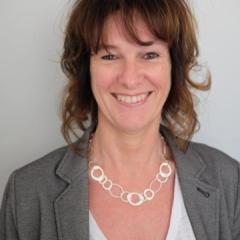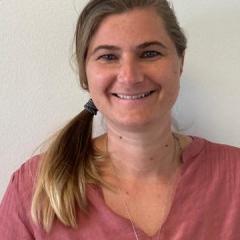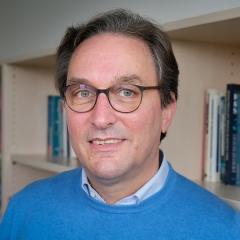German Research Foundation
The German Research Foundation (DFG) is the central funding organization for science in Germany. It supports excellent research in all disciplines with a variety of programs - both for individual researchers and for larger collaborative projects. Doctoral researchers can submit proposals for projects with a limited duration and topic within the framework of individual funding, including funding for their own position if required. In addition, the DFG funds coordinated programs such as Collaborative Research Centres, Research Units or Research Training Groups, which are aimed at long-term collaboration and structural research orientation. A special focus is also placed on the promotion of early career researchers through special programs for qualification and career development.
Our service for you
-
Individual feedback on your application - with regard to structure, content and funding criteria
-
Financial planning - support in calculating your project budget
-
Personal advice - by e-mail, telephone or in a face-to-face meeting
Feel free to contact us - we will help you to implement your research ideas in a DFG project.
Individual support
The DFG offers suitable funding opportunities to doctoral researchers at all career stages - the key factor here is an innovative project idea. You can apply for a thematically and time-limited individual project with the Research Grant - including funding for your own position via the Own Position module. Applications can be submitted at any time, regardless of the topic.
First-time applicants can mark their proposal accordingly. In this way, the DFG aims to encourage early career researchers to apply for their first third-party funding - often in combination with the Individual Position.
Note: The DFG Liaison Officer, Prof. Dr. Christian Lahusen, mustbe informed of the submission of DFG proposals.
Important: Proposals for a DFG-funded position must be submitted to the Research Funding Unit for review before submission, as a legally binding signed employer's declaration is required. Please note the internal procedures.
Tip: Use our proposal coaching - particularly helpful for first-time proposals and when applying for your own position.
Quicklinks DFG forms and information:
The Walter Benjamin Program is aimed at postdoctoral researchers in the early postdoc phase and supports scientists in the qualification phase following their doctorate to independently implement their own research project at a location of their choice. The focus is on personal career support and the scientific potential of the applicants. The Walter Benjamin Program is a mobility program, whereby "mobility" refers to a move to a new research environment, which is usually accompanied by a change of institution. Two modules can be applied for in this program (can also be combined): 1st module Walter Benjamin Position (Germany) and 2nd module Walter Benjamin Fellowship (abroad).
Tip: Please inform the Research Funding Office in good time and seek advice from us! We will be happy to assist you with your application.
Note: An application for the Walter Benjamin Program must be submitted to the Research Funding Office for review before submission. Please note the internal procedures for submitting proposals.
The Emmy Noether Program gives outstanding young researchers the opportunity to qualify for a university professorship by independently leading a junior research group combined with qualification-specific teaching tasks over a period of six years.
Tip: Please inform the Research Funding Office in good time and seek advice from us! We will be happy to support you with your application.
Note: An application for the Emmy Noether Program must be submitted to the Research Funding Office for review before submission. Please note the internal application procedures when submitting your application.
The Heisenberg Program is primarily aimed at excellent academics who have already attained their professional standing and want to prepare for a long-term professorship with a top-class research project and further enhance their academic reputation. The Heisenberg Program offers the following modules: Heisenberg position, Heisenberg rotation position, Heisenberg professorship and Heisenberg fellowship.
Once you have been accepted onto the Heisenberg Program, you can choose between these options and combine them if necessary over the course of the five-year funding period.
Coordinated programs
Collaborative Research Centers and Transregios are long-term, interdisciplinary research institutions at universities that have a structural and profile-building effect. High scientific quality and originality of the sub-projects at an internationally competitive level, innovative, demanding, elaborate and long-term research programs, coherent networking of the sub-projects and adequate basic personnel and material resources on the part of the applicant university or universities are prerequisites for an SFB / TRR.
Please inform the Vice-Rector for Research, Infrastructure and Networking, Prof. Dr. Andreas Kolb, of your plans at an early stage!
Research Training Groups are university institutions for the promotion of young academics. The focus is on the qualification of doctoral candidates within the framework of a thematically focused interdisciplinary research program and a structured qualification concept.
Please inform the Vice-Rector for Research, Infrastructure and Networking, Prof. Dr. Andreas Kolb, about your plans in good time!
A research group is a close working alliance of several outstanding academics who work together on a research task. The research project goes far beyond the funding possibilities within the framework of the individual funding of the standard or priority procedure.
Please inform the Vice-Rector for Research, Infrastructure and Networking, Prof. Dr. Andreas Kolb, about your plans at an early stage!
Scientific infrastructure
Large-scale research equipment in accordance with Art. 91b of the Basic Law is financed proportionally by the German Research Foundation (50%), the state (40%) and the university (10%). The investment projects for university research must be characterized by outstanding scientific quality and national significance. The equipment must be used predominantly for research, i.e. the necessity of its procurement and use must be justified solely by its use in research. The scientific review process is carried out by the DFG.
Note: To apply, please contact the Research Funding Office in good time and follow the internal procedures of the University of Siegen. Obtaining signatures from the university management and the ministry is coordinated by the Research Funding Unit (Dr. Nadine Hoffmann) and the University of Siegen's Procurement Department (Mr. Detlev Dellwig).
Funding for large-scale equipment from the federal states is provided proportionally by the state of NRW (90%) and the university (10%). The equipment can be intended for use in research, training and teaching as well as patient care. The scientific review process is carried out by the DFG. To coordinate the application process, please contact the Research Funding Office in good time.
The DFG funds projects at scientific institutions, in particular service and information facilities in Germany. The aim of the funding is to establish efficient information systems for research from a supra-regional perspective.
Please note: As the submission of proposals in these programs is associated with a contribution to be made by the university and a commitment to sustainability, the early involvement of the Research Funding Unit is mandatory.


